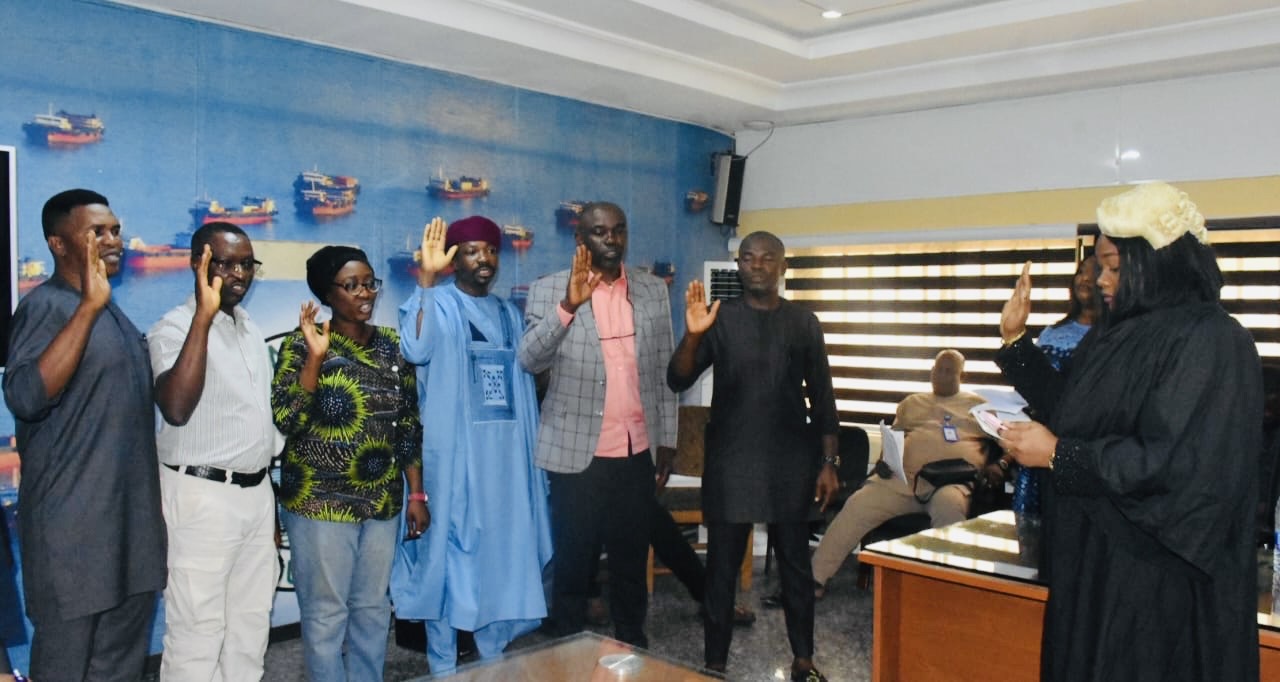NSC-FCT president pledges safer shipping, financial reforms
By Aderogba George
Mr John Ugwu, the newly elected President of the Nigerian Shippers’ Council Association, FCT chapter (NSC-FCT), has pledged to prioritise safer shipping practices and tackle pressing financial challenges affecting members.
Ugwu made the pledge on Wednesday in Abuja following his victory over Mr Mohammed Patigi by 31 votes to 10 in the chapter’s keenly contested election.
He said that addressing the high-interest rates imposed by commercial banks on shippers would be a key priority of his administration.
“There are numerous challenges confronting the FCT chapter. Chief among them is the 35 to 40 per cent interest rate currently offered by commercial banks. No shipper can survive under such conditions,” he said.
Ugwu said he would work to secure single-digit interest financing for members and introduce a digitised shipping coordination system to enhance operational efficiency in the FCT.
According to him, the new leadership will also focus on repositioning the chapter as a powerhouse for national development, committed to industrialisation, technology adoption, and job creation for young people.
“We will import technology, industrialise our zone, create jobs for our teeming youth, and generate revenue through taxation to support our economy,” Ugwu said.
He pledged to promote inclusivity and advocate for increased participation of women and youth in the shipping sector.
“I am humbled and honoured to stand before you today, grateful for the trust you have placed in me.
“This victory is not just about me, it is about our collective efforts and the shared desire for progress in the shipping industry,” he said.
Earlier, Ms Amina Safana, Head of Stakeholders and Shippers’ Association at the NSC Abuja Liaison Office, commended the peaceful and transparent electoral process that ushered in the new executives.
She urged members to prioritise patriotism and unity in advancing the chapter’s affairs.
“The election reflects our commitment to democratic values, unity, and progress. I congratulate all aspirants for their courage, the electoral committee for their professionalism, and observers for their diligence,” she said.
Safana also assured the new leadership of the Council’s continued collaboration to enhance compliance, deepen stakeholder engagement, and promote the interests of shippers in the FCT.
The News Agency of Nigeria (NAN) reports that other elected executives include Mr Mohammed Patigi as Vice President, Mr Anih Chigbo as Secretary, and Mr Okeke Harrison as Assistant Secretary.
Others are Mr Joseph Okeke as Treasurer, Mr Ifeanyi Ujuagu as Financial Secretary, and Lillian Abiodun as Public Relations Officer. (NAN)
Edited by Tosin Kolade







